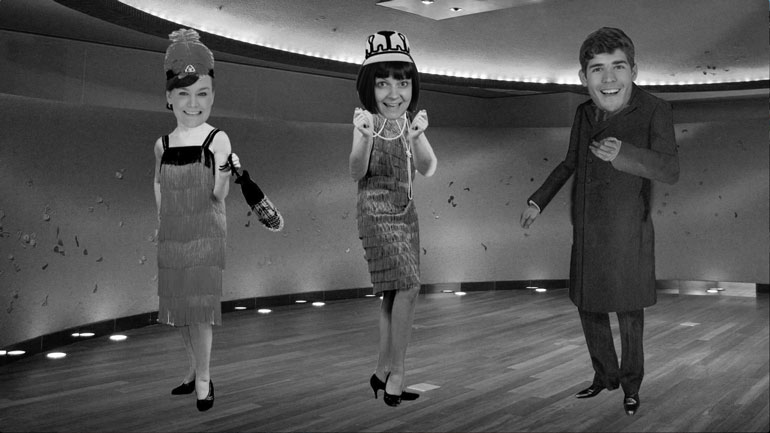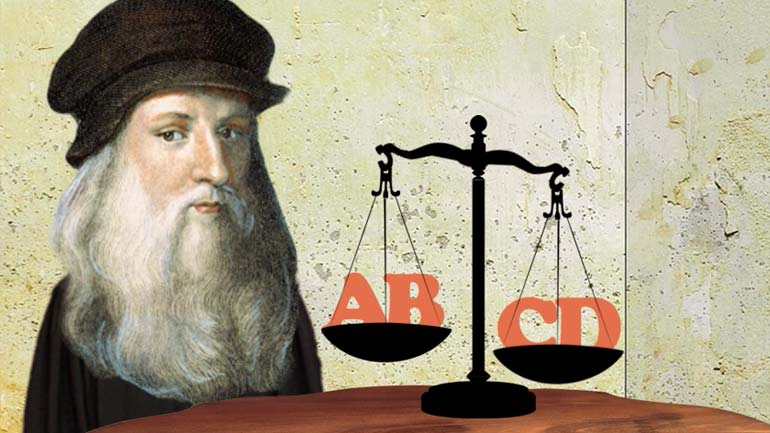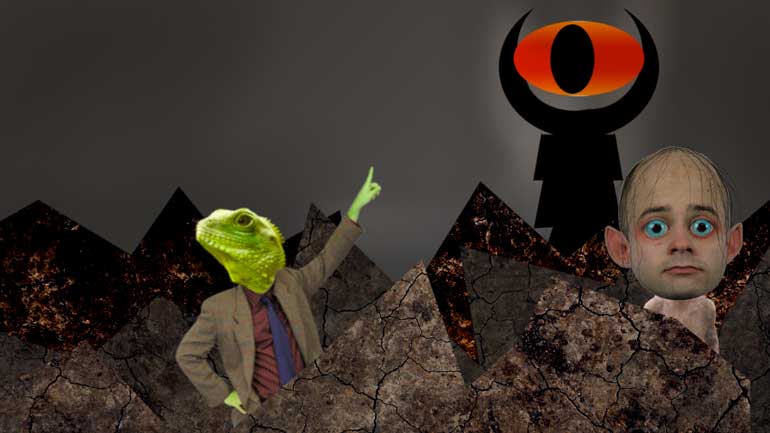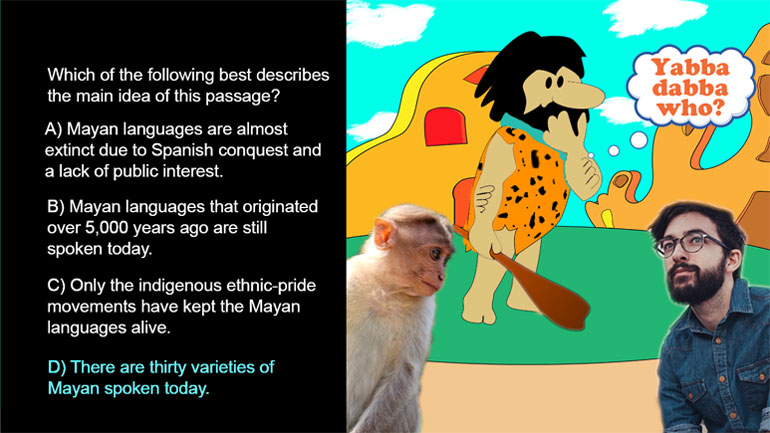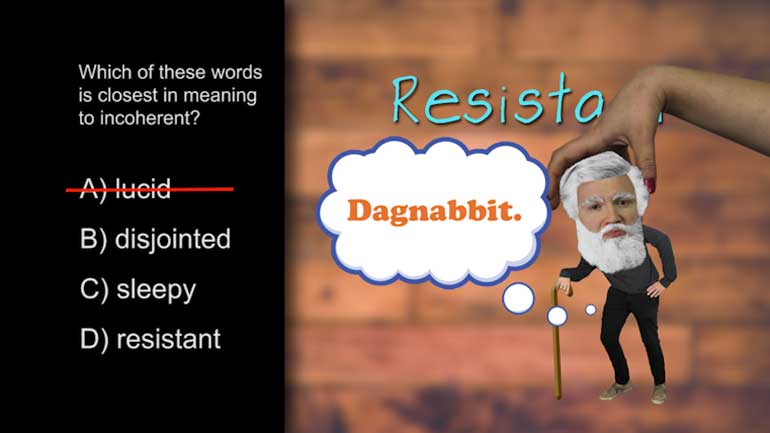ShmoopTube
Where Monty Python meets your 10th grade teacher.
Search Thousands of Shmoop Videos
ASVAB Paragraph Comprehension 3.4 Vocabulary-In-Context 182 Views
Share It!
Description:
ASVAB Paragraph Comprehension 3.4 Vocabulary-In-Context. The word "abstract" most nearly means what?
More Video DetailsTranscript
- 00:01
We speak student!
- 00:04
[ musical flourish ]
- 00:07
And here's your Shmoop du jour, brought to you by animal art. [a lady scooping dog poop]
- 00:10
And we're not talking about the sculpture our dog made on your lawn there.
- 00:14
Uh, but, we're sorry. We'll pick it up. [clears throat]
Full Transcript
- 00:17
Check out the following passage. [a passage on screen]
- 00:18
Although it sounds bizarre, the infinite monkey theorem is a
- 00:21
theory in the field of statistics which states
- 00:23
that a monkey hitting keys at random on a typewriter
- 00:25
for an infinite amount of time
- 00:27
will almost certainly produce any work of literature [a man reading the passage on screen]
- 00:30
already written, even the plays of William Shakespeare.
- 00:33
In this theorem, the monkey is actually a metaphor
- 00:35
for an abstract device that produces
- 00:37
a random sequence of numbers - or characters - [faint music playing in the background]
- 00:40
for an infinite amount of time. Hmm.
- 00:43
All right, the word "abstract" [a cat meows]
- 00:45
most nearly means, uh, what?
- 00:47
And here are the potential answers.
- 00:48
[ mumbles ]
- 00:52
All right, well, theoretically speaking, if we put monkeys in a room [image of a monkey, typewriter and a ticking clock in the background]
- 00:55
with typewriters for an infinite amount of time,
- 00:57
well, we'd probably end up with a bunch of broken typewriters
- 01:00
and a very foul-smelling room. Yeah.
- 01:02
But the infinite monkey theorem says [image of the novel Hamlet]
- 01:05
through probability, they'd eventually write "Hamlet."
- 01:08
The monkeys are being used to represent an abstract
- 01:10
device that randomly generates numbers.
- 01:13
Now this device doesn't actually exist. [a man reading an information leaflet]
- 01:16
It's not something we can actually assemble like, uh, say from Ikea.
- 01:20
So mechanical isn't the correct choice.
- 01:23
And while we might wanna write off these hypothetical monkeys [a man watching a monkey play violin on television]
- 01:26
and their random typing as irrelevant,
- 01:28
the hypothetical device is relevant to the theory
- 01:31
described in the passage.
- 01:33
And sophisticated doesn't actually work, either. [a man showing a video to an audience]
- 01:35
After all, a machine that just generates random numbers isn't really that sophisticated.
- 01:39
One can generate random numbers by rolling dice and
- 01:42
dice work without batteries. So D's wrong, too. [a man screaming and dropping a sheet of paper]
- 01:45
What's important is that this device
- 01:47
doesn't actually exist. It's just a representation
- 01:50
of an idea, so C - theoretical is the best choice. [a woman screaming looking at a messy room]
- 01:53
For our next work of animal art,
- 01:55
we'll discuss the new sculpture our dog made.
- 01:57
We'll call it "Shadows of Destruction:
- 02:00
Death to Upholstery."
- 02:01
[ boom ]
Up Next
ASVAB Paragraph Comprehension 1.2 Summary. Which of the following best describes the purpose of this passage?
Related Videos
ASVAB Paragraph Comprehension 1.2 Vocabulary-In-Context. In this passage, the word "illustrious" most nearly means...what?
ASVAB Paragraph Comprehension 1.3 Vocabulary-In-Context. The word "preposterous" most nearly means what?
ASVAB Paragraph Comprehension 2.3 Summary. Which of the following best describes the main idea of this passage?
ASVAB Word Knowledge: Word Roots, Prefixes, and Suffixes Drill 1, Problem 1. Which of these words is closest in meaning to incoherent?
